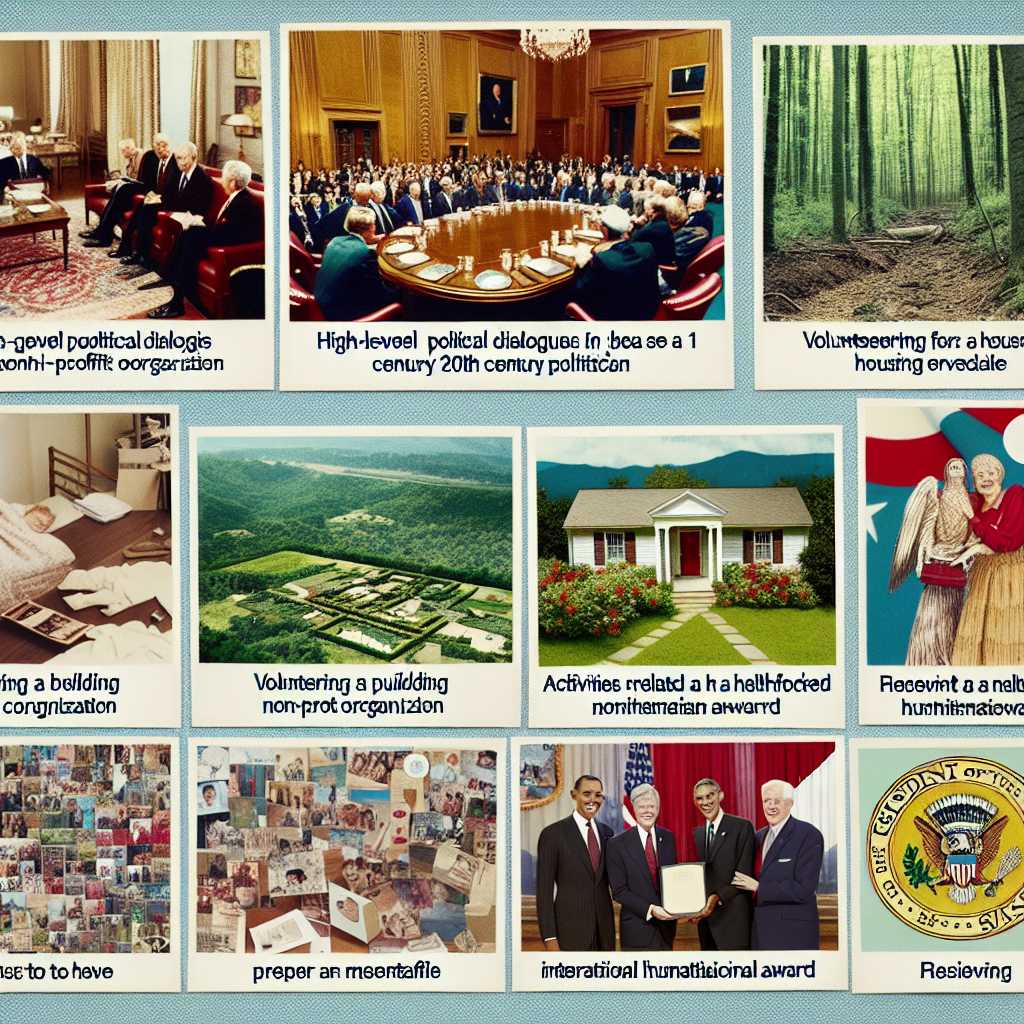The Enduring Legacy of Jimmy Carter: An Examination of the 39th President’s Impact on America and Beyond
Jimmy Carter, the 39th President of the United States, has an enduring legacy that is characterized by both his time in office and his post-presidential humanitarian work. Widely respected for his integrity and commitment to peace and human rights, Carter’s presidency from 1977 to 1981 was a period marked by significant challenges and substantial achievements.
The Presidency of Jimmy Carter: Domestic and Foreign Policy Highlights
Considered a Washington outsider, Jimmy Carter’s ascent to the presidency was grounded in a campaign that promised honesty and morality in the wake of the Watergate scandal. His tenure saw several noteworthy legislative achievements along with economic difficulties.
Energy and Environmental Policies
Carter’s foremost domestic achievements pertain to energy conservation and environmental protection. His foresight led to the establishment of a national energy policy designed to combat the ongoing energy crisis which emphasized both the reduction of consumption and the development of alternative energy sources.
Economic Challenges and Fiscal Responses
Economically, however, Carter’s presidency was troubled by persistent inflation and rising unemployment, a situation often termed “stagflation.” Although he introduced measures like voluntary wage and price controls, they achieved limited success. In response, he implemented deregulation in industries like airlines and trucking, which had far-reaching effects on those sectors.
Civil Rights and Social Equality
Carter also made strides in civil rights, bolstering affirmative action programs, advocating for gender equality, notably extending his support to the Equal Rights Amendment (though it failed to be ratified during his term), and accelerating racial integration.
Foreign Policy Advances and Setbacks
In foreign affairs, Carter’s greatest triumph was the Camp David Accords in 1978, which led to a lasting peace treaty between Egypt and Israel. However, his administration was also defined by major international crises such as the Iranian hostage situation, which severely affected his re-election prospects.
Humanitarian Efforts and Nobel Peace Prize Recognition
After leaving office, Carter’s humanitarian efforts significantly contributed to his favorable long-term reputation, addressing issues from disease eradication to election monitoring through The Carter Center. Importantly, he was awarded the Nobel Peace Prize in 2002 for his continued efforts in promoting world peace.
Healthcare Facilitation and Progressive Views
Consistently advocating healthcare, Carter used his platform for advancing discussions on universal healthcare access. His administration laid the groundwork essential for future healthcare reforms.
Advocacy for Peace and Diplomacy
True to his principles, Jimmy Carter remained a steadfast supporter of peaceful solutions internationally. His sharp critique of unnecessary political or military confrontations resonated with those advocating diplomacy over hostility; this won him much acclaim in his post-presidency years.
Critiques and Reassessments: Carter’s Presidency Under Historical Review
Jimmy Carter’s presidency faced its share of criticism alongside praise. While some view his term as a period of unfulfilled promise further complicated by geopolitical hostilities, others regard him as a moral leader constrained by external factors beyond his control.
Criticisms: Economic Troubles and Political Leadership
In dealing with economic hardships, critics argue Carter could not offer an effective solution which led to reduced public confidence and affected later electoral repudiation. Politically too, some contend that Carter’s lack of prior federal experience rendered his presidential dealings less effective.
Reevaluation: A Presidency of Integrity and Morality
Conversely, recent scholarly works have underscored Carter’s ethical standards as president. Approaching domestic policy development and international engagements with unwavering morality has been widely recognized as commendable despite any perceived shortcomings in outcomes.
Notes
*Image Description:*
An illustrative collage featuring Jimmy Carter—depicting him during his presidency with notable imagery such as his discussions at Camp David; a scene from Habitat for Humanity showing him volunteering; his work through The Carter Center; and him being awarded the Nobel Peace Prize—all contributing visual elements to tell a comprehensive story of his active life dedicated to service beyond politics.
